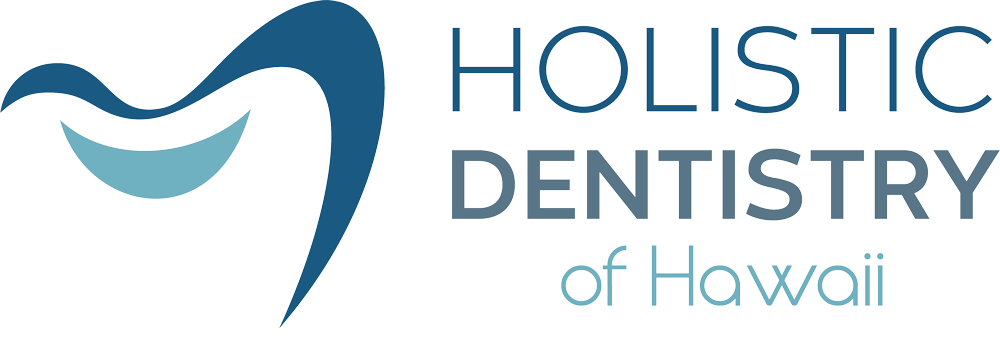
Frequently Asked Questions
Transitioning to an Insurance-Free Practice
Your Questions Answered
So you’re going out-of-network. What’s the difference between in-network and out-of-network?
In-network dentists have to agree to terms and conditions set forth by insurance companies. These restrictions can limit the type of procedures that the in-network dentist can provide for patients covered under the insurance plan. For example, the insurance company may determine that a certain type of treatment is cosmetic or unnecessary and deny payment, even if the dentist believes it is the best line of treatment for the patient.
In addition, in-network providers agree to fees for their services set forth by the insurance company. They are willing to take whatever payment the insurance company is willing to provide, which is often lower than the actual value of the procedure, clinician’s time, and materials used. As a result, in-network providers may see more patients in the same amount of time as out-of-network providers, in order to make up for the difference in payment.
On the other hand, out-of-network dentists are free to do what is best for the patient without having to worry about the restrictions set forth by insurance companies. They diagnose and treat patients with only the patient’s best interests in mind, and they are able to use the best materials and techniques to ensure the best cosmetic outcome. Out-of-network providers spend much more time with their patients and provide a more personalized experience.
While in-network providers are not necessarily subpar, they do have to answer to the insurance company and follow their rules. Out-of-network dentists have more autonomy in their practice and can provide a unique, patient-focused experience that can lead to better outcomes and greater patient satisfaction.
If your office is not part of my insurance network, how can I use my insurance with your office?
Out-of-network insurance reimbursement is a process by which a patient receives partial coverage for healthcare services provided by a provider who is not part of their insurance plan’s network. When a patient seeks care from an out-of-network provider, the patient will usually be responsible for paying the provider’s full fee for services rendered. The patient can then submit a claim to their insurance company for reimbursement of a portion of the cost. As a courtesy to all of our patients, we will continue to submit claims to your insurance company.
The amount of reimbursement for out-of-network services varies by insurance plan and can be affected by several factors, such as deductibles, coinsurance, and the insurance plan’s “reasonable and customary” fee schedule.
It’s important to note that patients should always check with their insurance company regarding their specific coverage for out-of-network services, as the reimbursement policies and percentages can vary widely between different insurance plan
How much will I get reimbursed from my insurance after I receive treatment?
Although we will not be part of your insurance network, you may still be able to use your insurance benefits. Here are some steps you can take:
- Check your insurance plan: First, review your insurance plan to see if there is any coverage for out-of-network providers. Your insurance plan may have a provision that allows you to see out-of-network providers, and this is very good because it allows you to see the dentist of your choice. The largest difference is that you will need to pay the full fee up front, then the insurance will mail you a reimbursement check upon receiving the claim (which we will submit on your behalf.)
- Get a pre-treatment estimate: Contact your dental insurance company and request a pre-treatment estimate. This will give you an idea of how much your insurance will cover and how much you will need to pay out of pocket. Our advice is to call and ask what their coverage would be on the top 5 most common dental procedures: Cleanings, Exams and X-Rays, Composite (tooth colored) Fillings, Crowns and Extractions.
- Consider changing insurance plans: If your insurance plan has no out of network reimbursements, and you have the ability to change it, most Delta Dental plans and some HDS plans do provide out of network reimbursements. Also, Aflac offers several dental insurance plans that can help cover the costs of routine dental care, as well as unexpected dental expenses.
- Most all Dental Benefits have a maximum allowable payout per year. As long as your policy has out of network coverage, you are still eligible to receive this annual total amount.
Can you send a pre-authorization so I will know what my portion will end up being?
We regret to inform you that our office will be unable to confirm the estimated amount of reimbursement that you may receive from your dental insurance.
Why are your fees more if I don’t have insurance?
We set our fees by factoring in many items like lab fees, amount of time it takes, dental materials, degree of difficulty and many other factors. The dental insurance company is a for profit company and makes money by collecting more premiums from patients than claims they pay out. In order to lower claims paid, they will lower how much they pay dentists or dictate how much a dentist can charge.
Do you know who is accepting new patients under my plan?
You will need to call dentists to find out. We know that other offices may be out of network for different insurances and this can change at any time.
Why are you choosing to drop insurance?
Due to recent changes, we find that the time is now to provide the best for our patients and take back our autonomy. This will give us the flexibility to prioritize our patients’ needs without being constrained by insurance company limitations. We will focus solely on providing the best possible care and use advanced materials and techniques to ensure excellent cosmetic outcomes. Additionally, we would like to spend more time with our patients and offer a more personalized holistic experience. This is what has and will continue to set us apart from in-network providers who are bound to comply with insurance company regulations.
How is it beneficial to me as a patient?
More personalized care, expanded treatment options and higher quality care.
Should I continue to pay for my dental insurance?
The answer to that question is personal and depends on individual circumstances. If you need to see a specialist, having insurance may be beneficial. However, if you are self-paying for your insurance , you may end up spending more money than you save. If you have insurance provided and paid for by your employer, it’s generally recommended to keep it.
Will this affect me seeing any specialist for work?
Your ability to see specialists will remain unaffected by this change. We will still refer you to the most trusted and qualified specialists who are best suited to meet your needs.
Will you accept any payment plans or offer any discounts?
Yes, please take note of some possible options that may be available to you.
- Firstly, we will be offering a 5% prepayment discount for patients who pay for their treatment in full 1 week or more before their scheduled appointment.
- Finally, we will continue to submit claims to your insurance company as a courtesy, even though we will no longer be participating providers.
What makes your office set apart from any other office that accepts insurance? I should just go there!
It’s rare for dentists to have enough staff these days. Being able to offer better benefits, we are able to compete in the market for great employees.
Dr. Doi is one of two IAOMT accredited holistic dentists in the state. Holistic dentists take a whole-body approach to dental care, recognizing the interconnectedness of oral health and general health. He is also SMART certified, which stands for Safe Mercury Amalgam Removal Technique, which is a program that trains dentists in the safe and effective removal of mercury amalgam fillings, which can release harmful mercury vapors during removal if not handled properly. SMART certified dentists have undergone rigorous training in the proper protocols for removing amalgam fillings, minimizing the risk of mercury exposure to patients and dental staff.
To put it frankly, Dr. Doi truly cares about his dental patients and the staff, and is committed to treating them with the utmost kindness and respect they deserve. We are honored to serve patients and express humility and gratitude for their presence in the practice
